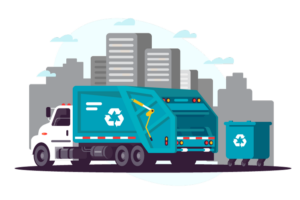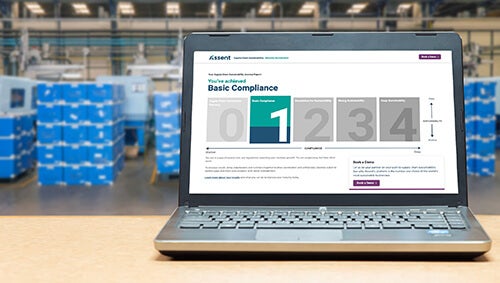Key Features of the EU Waste Framework Directive
The revised EU WFD establishes concepts and definitions related to waste management, including recycling and recovery. It outlines when waste should be considered a secondary raw material, allowing stakeholders to distinguish between waste and by-products. Additionally, it lays out waste management principles, requiring that waste be managed without endangering human health or the environment, with an emphasis on waste prevention.
Key features:
- Introduces binding waste reduction targets.
- Establishes a hierarchy for waste processing.
- Improves recycling systems within the EU.
- Facilitates waste recovery through decontamination.
- Outlines mandatory requirements for a centralized database containing information on Substances of Concern In articles, as such or in complex objects (Products) (SCIP).
The Waste Framework Directive & the Circular Economy


The EU WFD (2018/851) supports the broader EU circular economy initiative, which aims to move the European economy toward sustainable production and consumption. The current closed-loop economic model relies on ceaseless consumption of scarce natural resources. Goods are produced, used, and disposed of in waste streams with low levels of recycling. In contrast, the open-loop economic model, which the EU is moving toward, encourages companies to design and manufacture products using resources that are non-scarce and non-toxic, and which can be easily disassembled and recycled using waste streams.
The Waste Framework Directive & Existing Legislation


Under the EU Registration, Evaluation, Authorisation and Restriction of Chemicals (REACH) Regulation, there is an obligation to make downstream users aware of products containing substances of very high concern (SVHCs) above the 0.1 percent weight by weight (w/w) threshold. Under the new EU WFD, SVHC reporting obligations expand significantly.
These expanding reporting obligations stem from a legal mandate under the EU WFD that compels the European Chemicals Agency (ECHA) to establish a central database of products containing hazardous substances. Reporting obligations for the SCIP database began on January 5, 2021. As a result, producers, assemblers, importers, and distributors of articles containing SVHCs above 0.1 percent w/w threshold have to collect more information on these items in addition to the data required under the REACH Regulation.
SCIP Database Requirements


The SCIP database will require in-scope companies to name the substance over threshold, provide a concentration range, supply safe use guidance, and submit additional information.The additional information will allow waste stream operators to quickly access instructions on the proper recycling and repurposing of complex products, and make it easier for workers to access safety information about materials they come into contact with.
The database, and the increased visibility it brings to company product data, is expected to result in a decline in the use of SVHCs in products. Companies should be aware of safer alternative solutions and be prepared to justify their use of SVHCs as regulations continue to evolve. Smaller businesses and non-duty holders can support compliance by accessing free tools such as the SCIP Registration Center.






